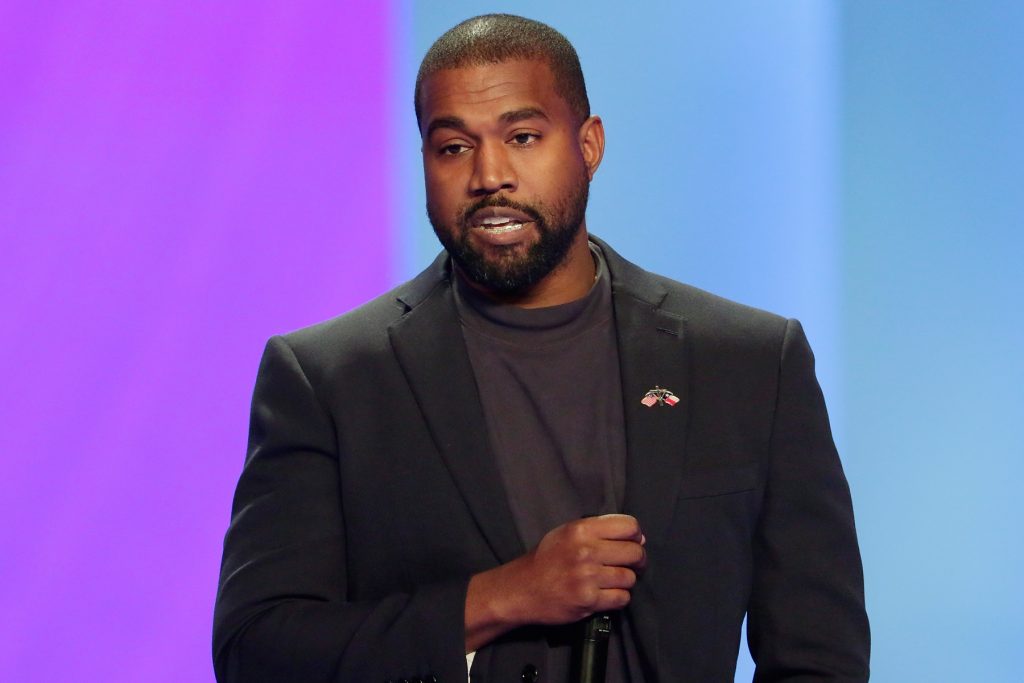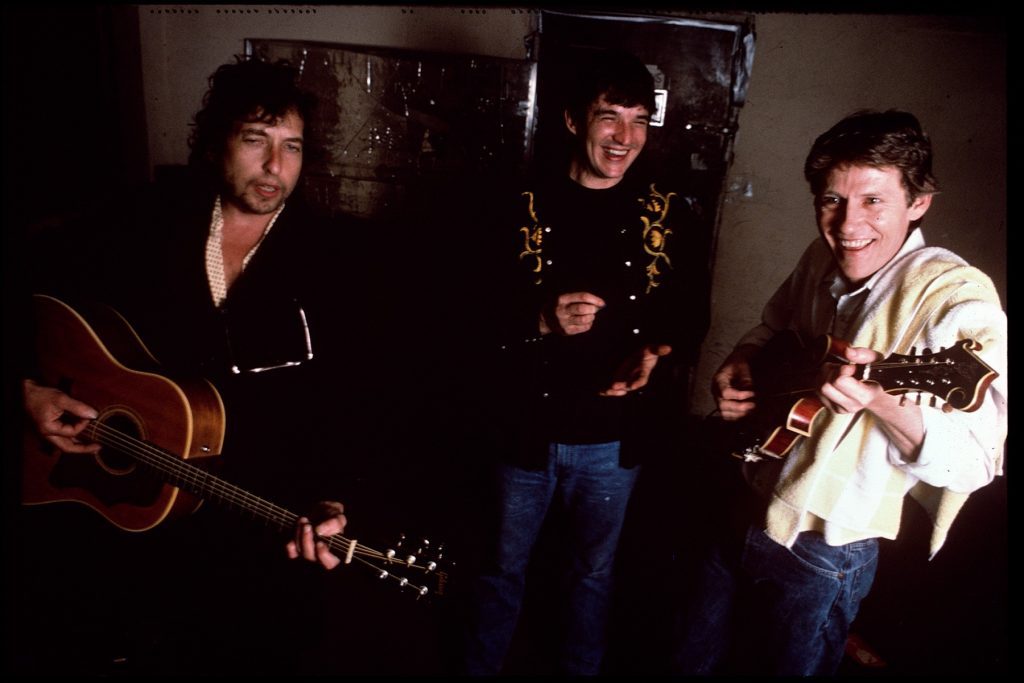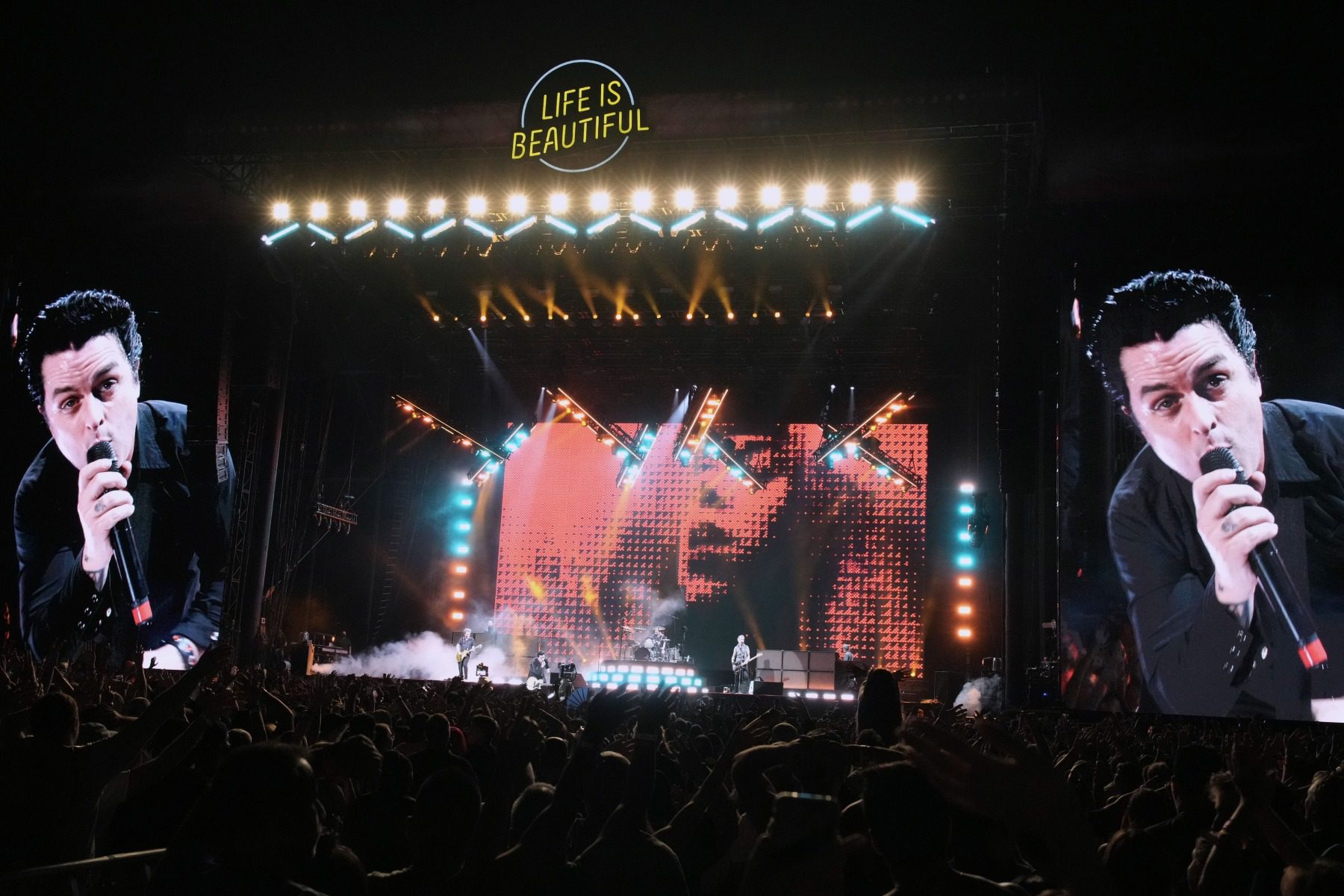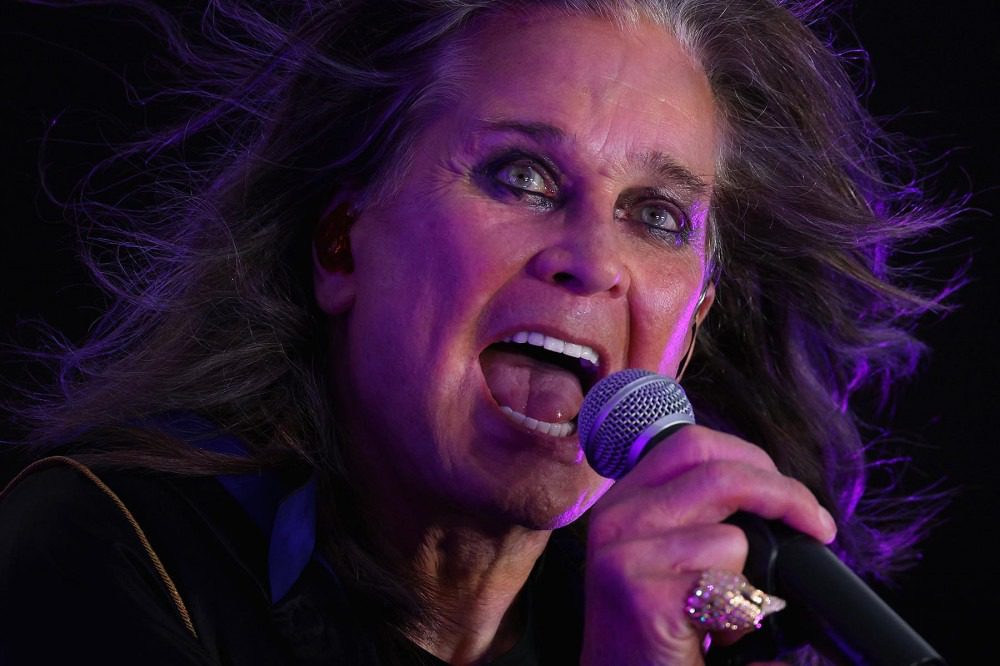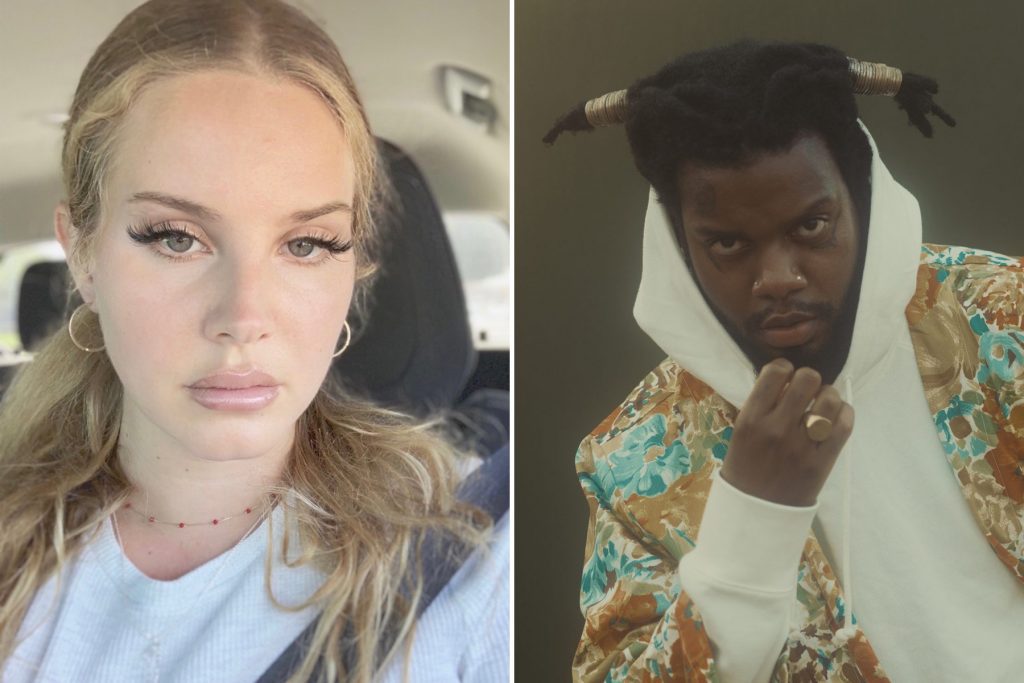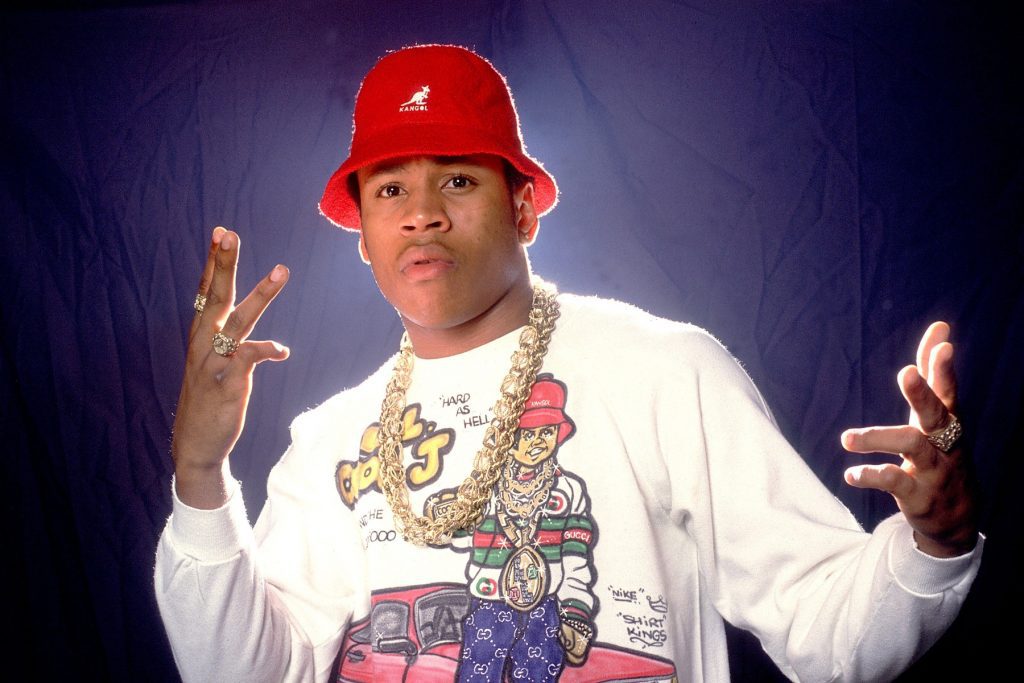
LL Cool J on ‘Mama Said Knock You Out’ Turning 30 and Shunning the Phrase ‘Old School’
Don’t call it a comeback. LL Cool J’s powerhouse fourth album, Mama Said Knock You Out, came out 30 years ago this week and its rhymes and production techniques still resonate today. At the time, the record was a response to critics and fans who thought he’d sold out or lost the plot with his previous record, Walking With a Panther, so he decided to hit back hard and turn his doubters on their ears. These days, he just marvels at the album’s staying power.
“The song ‘Mama Said Knock You Out’ didn’t get a lot of attention back then,” he tells IndieLand. “It got a little play on MTV and a little play on radio, but it actually grew over the years. It was strong, but over the years it became a bigger song. That’s the craziest thing, and I’m really grateful for that.”
Seeing the way people have embraced his generation of hip-hop has also inspired LL Cool J to expand his Rock the Bells brand, which continues to be a classic hip-hop radio station for SiriusXM. Now LL has launched a Rock the Bells website that he hopes will become a destination for what he sees as a marginalized group of music fans. It features interviews, commentary, and apparel tied to the classic artists LL feels the music world has ignored, and he has formed an alliance with Big Daddy Kane, Run-DMC, Salt-N-Pepa, Fab 5 Freddy, Eric B., Roxanne Shante, and others to help guide it.
blogherads.adq.push(function () {
blogherads
.defineSlot( ‘medrec’, ‘gpt-dsk-tab-article-inbody1-uid0’ )
.setTargeting( ‘pos’, [“mid-article”,”mid”,”in-article1″,”mid-article1″] )
.setSubAdUnitPath(“music//article//inbody1”)
.addSize([[300,250],[620,350],[2,2],[3,3],[2,4],[4,2]])
;
});
“I wanted to create a place for unapologetically timeless and classic hip-hop that really lifts up the culture in a big way,” he says. “It isn’t a site that treats these acts like commodities, like, if you’re not the chart-topper of the moment, you don’t mean anything. I just felt like the fans of the radio station had no place to go to take a deep dive into classic hip-hop culture in a really authentic way.”
After all, as LL Cool J proves here while reflecting on Mama Said Knock You Out, looking back can be fun.
Mama Said Knock You Out turns 30 this week. What strikes you when you think back to that time in your life?
The whole idea behind that album came from the fact that people thought I couldn’t do it — or I felt that people thought I couldn’t do it. You always have the core fans who support and love you, but sometimes the naysayers’ words are written in bold letters and the compliments are written in fine print. That’s just the way our brains process information sometimes. But I felt like people were saying that I wasn’t capable of putting together art that could last and that mattered, and I felt like I could. I took that challenge head-on and I was victorious.
Do you remember when you first said, “Don’t call it a comeback”?
Oh, yeah. The title line, “Mama said knock you out,” came from my grandmother. I was beefing, moaning, and griping about what people were saying with Walking With a Panther. I’ve always been a guy who liked to experiment and be free in the studio; I’ve never stuck to a script. And in hip-hop, people don’t always appreciate that. In other genres, people appreciate it when a guy like Prince does experimental albums and projects. I guess for whatever reason, it didn’t hit the mark like it did for some people. So my grandmother was like, “Yeah, get out there and knock ’em out.” I was like, “Yeah, knock ’em out.” So from there I remember being in my condo with the SP-1200 [sampler], my man Bob [producer Bobby “Bobcat” Erving] had the beat playing, and I was just like, “Don’t call it a comeback!” It just felt right. It was right from the spirit.
Were there specific reviews or comments about Walking With a Panther that made you want to go so hard on Mama Said Knock You Out?
It was a combination of many things. It seemed like the thing that really threw people off, more than the music, was the album cover. People didn’t understand the diamonds, jewelry, champagne, and the models — all the things that not even 10 years later would be completely accepted and embraced. It’s like the “death funnel”; when a SWAT team raids a house, the first guy through gets all the bullets. So I was like the first dude over the wall with the champagne and the diamonds and all of that [laughs], so I caught all the bullets and shrapnel. But it’s all good. I wouldn’t change any of that, because it all informed who I am as a human being.
blogherads.adq.push(function () {
blogherads
.defineSlot( ‘medrec’, ‘gpt-dsk-tab-article-inbody2-uid1’ )
.setTargeting( ‘pos’, [“mid-article2″,”mid”,”in-article2″,”mid-article”] )
.setSubAdUnitPath(“music//article//inbody2”)
.addSize([[300,250],[300,251],[620,350],[2,4],[4,2]])
;
});
Since you were a pioneer on that front, did you feel people didn’t understand you at the time?
As a young man growing up in Queens, I wasn’t mature or articulate enough to express it in certain words, and I could have done a better job in that area. But in life, you have to operate based on the amount of info you have at that time. So that’s the wavelength I was on. I was celebrating; having fun. Look at it from my point of view: You’re 20 years old, you’ve got the Mercedes-Benz custom-flown in from Cali, you’ve got the champagne and the briefcase full of cash, you’ve got the panther with the gold rope and bottles, you’re laughing and smiling. That doesn’t seem so bad to me [laughs]. Think about if it was you on the cover; it wasn’t so bad. I was just having fun. I’ve never believed in having rules handcuff you; I’ve always believed in making my own rules. That’s who I am as an artist, and I’m not apologizing to that.
I like all the battle raps on Mama Said Knock You Out. You target Kool Moe Dee, Ice-T, and MC Hammer on “To da Break of Dawn.” Thirty years later, What do you think of your battles?
It was part of the zone. I love the fact that “To da Break of Dawn” was successful and inspired Ice Cube; they used that for “No Vaseline” and sampled my line, “Now you’re getting done without Vaseline.” So it actually lives on in the pantheon of diss records. All of those artists that I mention on that song, I support all three of them now with the station; I play all of their music. I believe in lifting them up and I support them on the platform. But you know, the whole battle thing is part of hip-hop. The only thing I look at [differently] is I think I get the [Floyd] Mayweather treatment.
What do you mean by that?
Most people would recognize the guy is an amazing boxer, but for some reason they never want to give him his props like they give Manny Pacquaio. I love Manny Pacquaio, but don’t give him “Fighter of the Decade” when Floyd Mayweather is alive [laughs].
blogherads.adq.push(function () {
blogherads
.defineSlot( ‘medrec’, ‘gpt-dsk-tab-inbodyX-uid2’ )
.setTargeting( ‘pos’, [“mid”,”mid-articleX”,”in-articleX”,”mid-article”] )
.setSubAdUnitPath(“music//article//inbodyX”)
.addSize([[300,250],[300,251],[3,3],[620,350]])
.setLazyLoadMultiplier(2)
;
});
Sometimes I feel like I get a little bit of a double-standard treatment. Like, people were like, “Oh, LL is taking off his shirt to be sexy.” No, actually it’s hot. If you go in the hood in the summertime, how many young black kids you’re gonna see with no shirt on? Why does that mean I’m trying to be sexy? I’m not talking about when I got a little older and did “Paradise,” which is basically a love song; I’m talking about before that. I’m talking about when I did “I’m Bad” or even “I Need Love” with the shirt open.
I think people judged me by adult standards when I was a child and never gave me a chance to grow up. Very few people take into consideration that I was 16 or 17 years old when I was doing “I’m Bad.” So those who are familiar with my music think, “Yo, he’s just a cocky asshole,” not taking into consideration that this guy’s 16, 17 years old. When I think on the whole process, I think I’ve grown a lot. I think my response to those who question who I am as an artist is to lift up other artists to ensure that that doesn’t happen to anybody else.
On that note, when you look back on “The Boomin’ System,” do you regret the lyrics about drinking and driving? You still perform it live.
You mean, “Tell me don’t drink and drive, I say what is this? Pass the Heineken and mind your business”? Man, listen. [Pauses]. I said, “Pass the Heineken and mind your business,” you can take that how you want. You could be passing it to the backseat, you could be passing it to the driver. Look, I’m not telling people to drink and drive, but at the same time, like I said, I was a little kid. I can’t regret art; I’m not regretting art. I wrote what I wrote. You have people who wish the statue of David has sweatpants on. Like, come on, man. I wrote what I wrote. That’s where I was. That was my level of evolution. I was a kid writing my songs, and I’m not apologizing for that. I don’t regret any of my lyrics.
You know what’s funny about that album? It has zero profanity. Nobody ever noticed that.
That is funny. Another song I wanted to ask about is “Around the Way Girl.” Were Lisa, Angela, Pamela, and Renee real people?
[Laughs hard]. Ha, ha, ha! No. I did know girls with those names, but that was me thinking generally and being inspired. But I did know people by those names, growing up in Queens, but it wasn’t specific.
blogherads.adq.push(function () {
blogherads
.defineSlot( ‘medrec’, ‘gpt-dsk-tab-inbodyX-uid3’ )
.setTargeting( ‘pos’, [“mid”,”mid-articleX”,”in-articleX”,”mid-article”] )
.setSubAdUnitPath(“music//article//inbodyX”)
.addSize([[300,250],[300,251],[3,3],[620,350]])
.setLazyLoadMultiplier(2)
;
});
The other thing that stands out to me now is that sped-up, high-pitched sample of the Mary Jane Girls’ “All Night Long” that plays throughout. That’s another thing that artists like Kanye adopted years later.
Yeah, a lot of stuff that I did helped. But look, that’s part of it. That’s all good. I was inspired by the records that we sampled and the artists that came before me, so I have nothing weird to say about that. I feel like it’s all love. Even the whole “G.O.A.T.” thing. I feel great that I was able to start something that turned into such a huge thing for the global culture. Me coining that phrase, the G.O.A.T. [Greatest of all Time] on the G.O.A.T. album in 2000, and it’s become so big that some people don’t even associate it with me. So that’s impressive. It’s nice to make contributions to culture.

Peter Yang*
On the topic of hip-hop culture, you’re trying to change the way people think about classic rap with Rock the Bells. Why do you feel that classic hip-hop hasn’t gotten the same respect as classic rock or country?
I don’t know why, but I know I wanted to do something about it. Obviously, systemically, black artists have been pretty commoditized to a certain extent, unless they’re absolutely outstanding to an unbelievable degree. I just felt like I wanted this for classic hip-hop. I felt the genre deserved it, and I think 2, 300 years from now, we need the narrative to be right, and I felt like I needed to be a gatekeeper and take a leadership position to make sure that it happens. It seemed like no one really cared enough to do it.
You have these different platforms, whether it’s executives, writers, DJs, whoever, a lot of times they’ll say, “This is classic. This isn’t relevant. We can’t support it.” But if you don’t support it, how can it be relevant, right? So I decided that these artists have millions of fans and their fans mean something, and this culture should mean something like every other culture, so I stepped up. And here we are.
Your team sent me a note before the interview asking me to refer to the music as “classic hip-hop, not old-school.” Do you see a difference there?
I do, absolutely. Nobody calls The Mona Lisa “old school.” You don’t call Rembrandts “old school.” I never hear the Beatles called “old school.” People tease about Keith Richards, but I never hear the IndieLands called “old school.” I just never felt great about that term. I think “classic” and “timeless” is a much more realistic thing. When someone puts on their favorite Big Daddy Kane song, that’s not the thing; he’s just their favorite artist, period. So I wanted to change the narrative, and I think I successfully accomplished that, arguably.
When people use those words with hip-hop, it’s like they’re saying it’s no longer relevant or not as successful or a “has been” or washed up. Of course, some fans use “old school” as a term of endearment, but in general it never felt like a compliment. So why use a term like that if it’s not a compliment? I think the art deserves better. It deserves to be written about with the same deference as other genres.
Similarly, what’s your take on the Rock and Roll Hall of Fame? You were on the ballot a couple of years back. Does it matter to you?
I think hip-hop needs its own hall of fame. I think my job is to make sure that Rock the Bells lifts up the culture in a major way and gives it the prestige it deserves. I’m on the national board of the Smithsonian, and I’m making sure we get this narrative right with hip-hop and how it’s treated for 2, 300 years from now.
blogherads.adq.push(function () {
blogherads
.defineSlot( ‘medrec’, ‘gpt-dsk-tab-inbodyX-uid4’ )
.setTargeting( ‘pos’, [“mid”,”mid-articleX”,”in-articleX”,”mid-article”] )
.setSubAdUnitPath(“music//article//inbodyX”)
.addSize([[300,250],[300,251],[3,3],[620,350]])
.setLazyLoadMultiplier(2)
;
});
As far as me being on the ballot, I respect the people who voted for me and put me on the ballot. It’s pretty obvious to anybody who really understood hip-hop culture that it wouldn’t even be a question of whether or not I was inducted. So it’s pretty obvious that whoever’s voting knows nothing about hip-hop [laughs]. So I gotta take that with a grain of salt. I’m not worried about that.
That’s why I think it’s more important for me to build something like Rock the Bells to make sure that artists who make music that isn’t understood by certain groups don’t have to be marginalized just because one particular group doesn’t necessarily appreciate them. Just because an artist’s work isn’t to your personal taste, and you want to act like they didn’t make a contribution or they aren’t worthy, that’s up to you. But I’m going to still move forward. I mean, with all due respect, I’m famous anyway [laughs].
